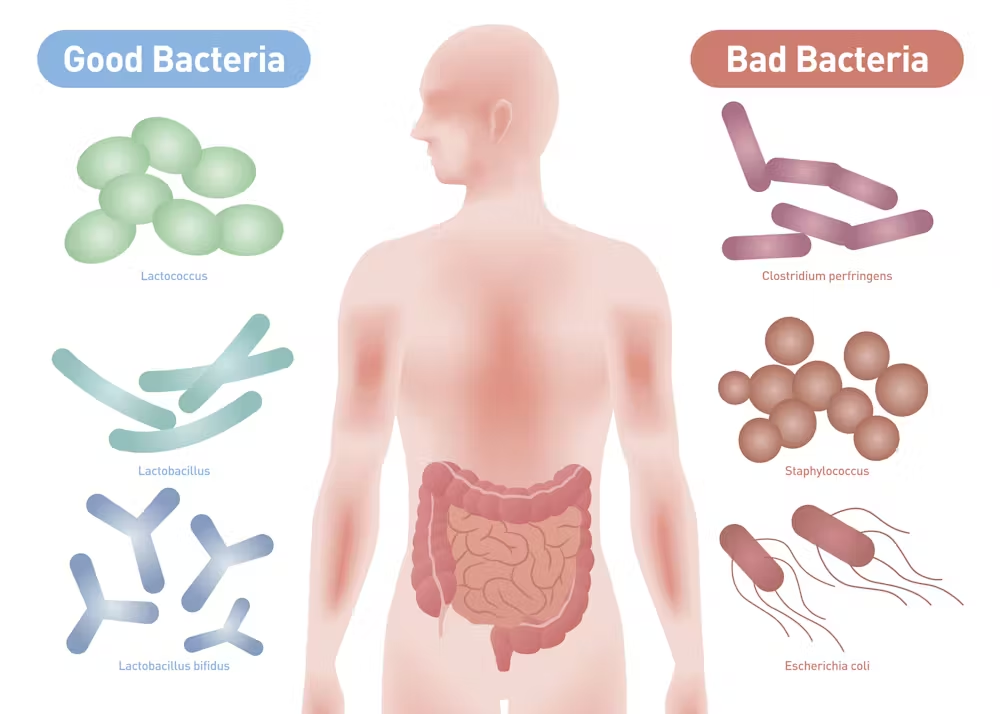
As women, we often hear about how our hormones impact our energy, skin, and cycle — but what’s often left out of the conversation is where it all begins: the gut.
Your gut microbiome — the trillions of bacteria, yeast, and microorganisms that live in your digestive tract — doesn’t just help you digest food. It also plays a major role in hormone metabolism, mood regulation, and inflammation.
One of the most fascinating links is what researchers call the “estrobolome” — a group of gut bacteria that helps metabolize and regulate estrogen levels. When your gut is balanced, estrogen can be properly detoxed and recycled. But when the microbiome is off (due to antibiotics, poor diet, stress, or lack of fiber), estrogen can recirculate — contributing to symptoms like bloating, PMS, mood swings, or painful periods.
From a functional nutrition perspective, we always ask why something is happening — and more often than not, the “why” leads back to the gut.
Your gut impacts hormone balance in three key ways:
When we support the gut, we support hormonal harmony — and with that, we feel more grounded, clear, and in tune with our cycles.
These foods work with your body to nourish your microbiome and support detox pathways:
1. Fermented foods: sauerkraut, kimchi, kefir, coconut yogurt, miso
2. Prebiotic fibers: asparagus, dandelion greens, Jerusalem artichokes, oats, flaxseed
3. Liver-loving veggies: broccoli, Brussels sprouts, kale, cauliflower (rich in sulforaphane for estrogen detox)
4. Gut-soothing additions: bone broth, ginger, aloe vera juice, chia pudding
5. Anti-inflammatory fats: olive oil (hello, Graza!), wild salmon, avocado, flax oil, walnuts
Try incorporating one food from each category daily to create a rhythm your gut — and hormones — can count on.
Herbal teas can be a gentle yet powerful way to nurture the gut and balance hormones naturally:
If your gut is struggling, your hormones often signal it. You might notice:
In functional nutrition, these aren’t random symptoms — they’re data. Your body’s way of communicating that something’s off-balance internally.
Your hormones don’t exist in isolation — they respond to what’s happening in your gut, your stress levels, your sleep, and your nutrition. By viewing the body as an interconnected system rather than separate parts, we can restore balance in a sustainable, root-cause way.
At KBalanced, my mission is to help women tune in to their bodies — not fight them. Because when your gut and hormones are in sync, you feel grounded, energized, and unstoppable.